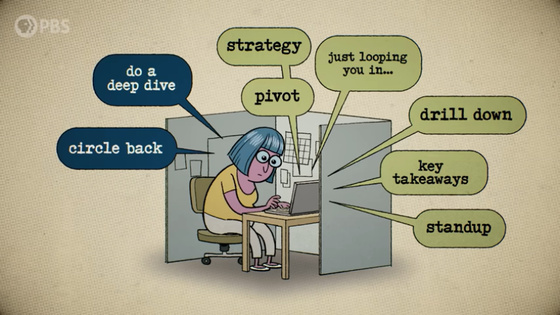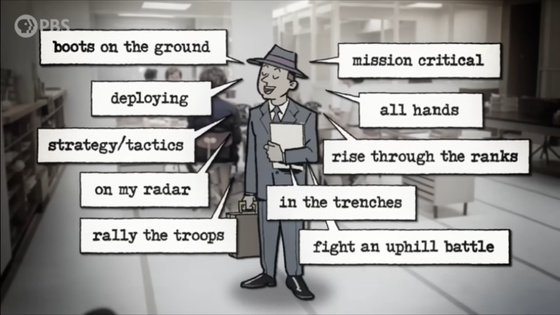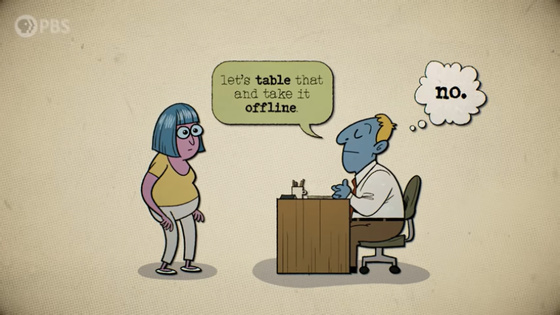Why do companies use difficult-to-understand 'business terms'?

In business situations, we want to communicate accurately, but we are often bombarded with unfamiliar and difficult-to-understand 'business jargon.' Sociolinguist Erica Brozowski explains why some people actively use business jargon.
In Japanese, there are many business terms that are only heard in business situations, such as 'agenda' which refers to the topic or schedule of a meeting, and 'consensus' which refers to reaching an agreement on an opinion and preparing for it. Similarly, in English, there are many terms that have special meanings in business situations, such as 'drill down' (digging into data) and 'standup' (short meeting).

Brozovsky points out that such business jargon occupies a strange place in language: nobody likes it, but everybody uses it. According to Brozovsky, business jargon is classified as a technical term specific to people engaged in a particular profession or activity, called '

Many business terms originated at the end of World War II, when veterans were entering the workforce, bringing with them a lot of military jargon. 'Boots on the ground' refers to people who are actually working in the military or other fields, but it is also used in business to mean having personnel on-site. The term '

Sports terms were introduced to the business world around the same time. The word 'wheelhouse' is used in the business world to mean 'one's area of expertise' or 'the place where one can best demonstrate one's abilities,' but in 1959 it referred to the zone where baseball players were most likely to hit a home run. In addition, the expression 'across the board' is said to have originated from a table on which spectators could bet on horse races. Brozovsky speculates that the reason so many sports-related slang terms were introduced to the business world around the mid-20th century may be because 'workers viewed business as a competition, or because many people who worked in office jobs at that time enjoyed watching sports as a hobby.'

While some industry jargon allows members to communicate more accurately and efficiently, others are used to make the meaning more ambiguous. 'Let's table that' and 'take it offline' are both used to gently decline. Also, rather than saying 'firing,' it is more common to say 'restructuring,' which is another example of avoiding direct language.

To summarize the reasons for using business jargon, Brozovsky explains, 'It's a way to quickly adopt any terminology used in a new and trendy field, but it also conveys power and status.' Linguists believe that the choice of phrases plays an important role in expressing the power relationship between speakers. By using technical terms in front of people who are not familiar with the terminology, the purpose may be to show off that you belong to a powerful group. In fact, there is

Therefore, it is possible that business jargon is becoming more and more common in modern times, as it becomes more condensed with each passing generation. However, this trend may be halted by Generation Z. According to a survey on business jargon in 2023 conducted by LinkedIn, Millennials born in the 1980s and 1990s use business jargon the most, while 60% of Generation Z born in the mid-1990s to 2010s want to completely eliminate business jargon.
Related Posts:
in Video, Posted by log1e_dh







